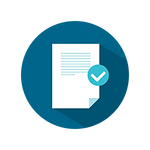Assessing the Need for a HRMS Solution




e Payslip
e Leave
Employee Self Service
Appraisal
Personal Administration
Learning Time Sheet
Recruitment
Mobile App Asset
What's HRMS?
Human Resource Management System
A HRMS (Human Resource Management System) or HRIS (Human Resource Information System) is a form of HR software that combines a number of systems and processes to ensure the easy management of a business’s employees and data. These systems could deal with everything from payroll to performance evaluation, covering the whole business. Human Resources Software is used by businesses to combine a number of necessary HR functions, such as storing employee data, managing payrolls, recruitment processes, benefits administration and keeping track of attendance records. It ensures everyday Human Resources processes are manageable and easy to access.












Time Attendance
Why HRMS?

01
Accelerate and simplify recruitment processes
Automating everyday HR processes with integrated solutions can facilitate the staff in spending more time in issues that need personal intervention. For small businesses, planning or handling recruitment process without HRMS software in place can increase recruitment cost and time.

02
Address employee improvement
Evaluation of employees is an important part of any business. To keep the workforce live up to its full potential and ensure that the best people are in the job, it is also important to have some measurements regarding employee performance while providing in-house guidance and training courses.

03
Monitoring KPIs
In order to encourage employees and facilitate business growth, a well fed business intelligence system could help in a great way. Small businesses should have the ability to drill down into the core data requirements and make use of automated results with turnover reports, employee training, absence analysis, recruitment and other important performance indicators.

04
Easy integration into HR systems
Automating everyday HR processes with integrated solutions can facilitate the staff in spending more time in issues that need personal intervention. For small businesses, planning or handling recruitment process without HRMS software in place can increase recruitment cost and time.

05
Automate daily workflow across the organization
A step by step workflow generated and monitored by HRMS systems reduce waste of resources and helps in better usage of employee hours. As businesses grow, it is likely that managers will have to spend more time out of their desks and involve in more client meetings plus other networking events.

06
Fast Payroll Processing
A step by step workflow generated and monitored by HRMS systems reduce waste of resources and helps in better usage of employee hours. As businesses grow, it is likely that managers will have to spend more time out of their desks and involve in more client meetings plus other networking events.
What's HRMS?
Human Resource Management System

HRMS
A HRMS (Human Resource Management System) or HRIS (Human Resource Information System) is a form of HR software that combines a number of systems and processes to ensure the easy management of a business’s employees and data. These systems could deal with everything from payroll to performance evaluation, covering the whole business. Human Resources Software is used by businesses to combine a number of necessary HR functions, such as storing employee data, managing payrolls, recruitment processes, benefits administration and keeping track of attendance records. It ensures everyday Human Resources processes are manageable and easy to access.
Scheduling & Duty Roster
Payroll processing
Job Cost Management
Performance Appraisal
Asset & Resource Management
Organization Chart
Training Administration
Personal Data Management
Hiring
Self Service Portal












Why HRMS?

01
Accelerate and simplify recruitment processes
Automating everyday HR processes with integrated solutions can facilitate the staff in spending more time in issues that need personal intervention. For small businesses, planning or handling recruitment process without HRMS software in place can increase recruitment cost and time.

02
Address employee improvement
Evaluation of employees is an important part of any business. To keep the workforce live up to its full potential and ensure that the best people are in the job, it is also important to have some measurements regarding employee performance while providing in-house guidance and training courses.

03
Monitoring KPIs
In order to encourage employees and facilitate business growth, a well fed business intelligence system could help in a great way. Small businesses should have the ability to drill down into the core data requirements and make use of automated results with turnover reports, employee training, absence analysis, recruitment and other important performance indicators.

04
Easy integration into HR systems
Automating everyday HR processes with integrated solutions can facilitate the staff in spending more time in issues that need personal intervention. For small businesses, planning or handling recruitment process without HRMS software in place can increase recruitment cost and time.

05
Automate daily workflow across the organization
A step by step workflow generated and monitored by HRMS systems reduce waste of resources and helps in better usage of employee hours. As businesses grow, it is likely that managers will have to spend more time out of their desks and involve in more client meetings plus other networking events.

06
Fast Payroll Processing
A step by step workflow generated and monitored by HRMS systems reduce waste of resources and helps in better usage of employee hours. As businesses grow, it is likely that managers will have to spend more time out of their desks and involve in more client meetings plus other networking events.
How to choose HRMS?





